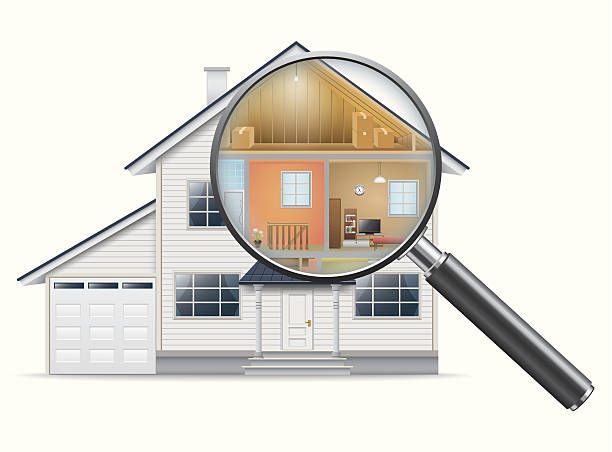- Get a License
-
Post-License
Post-License Courses
- Reciprocity
- Managing Broker
- CE
- Exam Prep
- Get a License
-
Post-License
Post-License Courses
- Reciprocity
- Managing Broker
- CE
- Exam Prep
The Lazy Girl’s Quick Guide to Buying a House
What should I know before I ordering a home inspection?
Today we are going to discuss these three questions:
- What is a home inspection?
- How do home inspections protect buyers?
- What should you look out for during the home inspection?

What is a home inspection?
A home inspection is a visual examination of a home's overall condition, usually conducted by a licensed and certified home inspector. The purpose of a home inspection is to identify any potential issues or problems with the home that may affect its safety, livability, or resale value.
During a home inspection, the inspector will typically examine the home's major systems and components, including the roof, foundation, electrical system, plumbing, heating and cooling systems, and more. The inspector may also look for signs of damage or wear and tear on the exterior and interior of the home, including walls, windows, doors, and floors.
After the inspection is complete, the inspector will typically provide a written report that outlines any issues found during the inspection. This report can help homebuyers make an informed decision about whether or not to proceed with the purchase of the home, and can also provide guidance on any necessary repairs or maintenance that may be required.
How do home inspections protect you as a buyer?
A home inspection can protect a first-time home buyer in several ways:
- Identifying issues: A home inspection can help identify any potential issues or defects in the home that may not be visible to the untrained eye. This can include issues with the roof, foundation, electrical system, plumbing, HVAC systems, and more. By identifying these issues, the homebuyer can make an informed decision about whether or not to proceed with the purchase of the home, and negotiate repairs or a lower purchase price if necessary.
- Ensuring safety: A home inspection can also identify any safety hazards in the home, such as electrical issues, gas leaks, or structural defects. By addressing these issues, the homebuyer can ensure that the home is safe for themselves and their family.
- Predicting future maintenance costs: A home inspection report can also provide valuable information about the condition of the home's systems and components, and identify any potential maintenance or repair costs that may be necessary in the future. This can help the homebuyer budget for these costs and avoid unexpected expenses down the road.
Overall, a home inspection can provide peace of mind for a first-time home buyer by ensuring that they are fully aware of the condition of the home they are purchasing, and can make an informed decision based on this information.
What should you look out for during an home inspection?
During a home inspection, there are several key items that you should look out for. Here are some of the most important things to consider:
- Structural issues: This includes cracks in the foundation or walls, sloping floors, or uneven settling.
- Roofing: Check for signs of damage, such as missing shingles, leaks, or damage from pests.
- Electrical systems: Look for outdated wiring, improper grounding, or any safety hazards.
- Plumbing: Check for leaks, outdated pipes, and water pressure issues.
- HVAC systems: Ensure that the heating, ventilation, and air conditioning systems are working properly and are up to code.
- Insulation and ventilation: Check that the insulation is up to code and that there is proper ventilation to prevent moisture buildup.
- Appliances: Test all appliances to ensure they are in working order.
- Pest and insect infestations: Look for signs of pests, such as rodents, termites, or bed bugs.
- Water damage: Check for signs of water damage, such as mold, mildew, or discoloration on walls or ceilings.
- Environmental hazards: Look for signs of asbestos, lead-based paint, or other hazardous materials that may be present in the home.
Overall, it's important to pay close attention to any issues or potential hazards that may be present in a home during a home inspection. A thorough inspection can help you make an informed decision about whether or not to proceed with a home purchase.

About the Author
Gabbi knew that real estate was the right career from the start. She is now dual licensed in both Kentucky and Ohio. She had her first sale within a month of getting licensed and hit her first million in sales volume within her first 6 months. She will have her real estate license for the rest of her life. Call her anytime if you have questions about becoming a real estate agent. She loves to share her passion for real estate with others!



Let's Stay Connected
Want to join the prec community?
Join our mailing list!
All Rights Reserved | Perry Real Estate College | Site by Fix8



